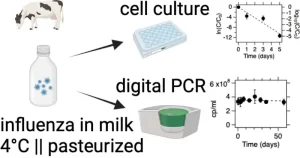Karolinska Institutet Research Stresses Need for Stricter Air Quality RegulationsA recent study by Sweden’s Karolinska Institutet, published in The Lancet Planetary Health, has linked long-term exposure to air pollution with millions of deaths in India.
The research, spanning a decade (2009–2019), provides alarming evidence of the health risks posed by fine particulate matter (PM2.5).The Scope of the ProblemPM2.5 particles, smaller than 2.5 micrometers, are known to penetrate deep into the lungs and bloodstream, posing severe health risks.
Key findings of the study include:
A 10 μg/m³ increase in PM2.5 levels results in an 8.6% rise in mortality.Approximately 3.8 million deaths over the study period were linked to PM2.5 levels exceeding India’s air quality guideline of 40 μg/m³.When compared to the World Health Organization’s (WHO) stricter guideline of 5 μg/m³, the figure surges to 16.6 million deaths, accounting for nearly 25% of total mortality during the period.Nationwide Exposure and Regional HotspotsAlarmingly, the entire population of India resides in areas where PM2.5 levels surpass WHO guidelines.
Some regions recorded levels as high as 119 μg/m³—far exceeding both national and global safety limits.Policy Implications and RecommendationsDespite the implementation of India’s National Air Pollution Control Program in 2017, PM2.5 concentrations have continued to rise in many areas.
The study calls for:Stricter air quality regulations aligned with global standards.Comprehensive measures to reduce emissions locally and address the long-range effects of PM2.5.”Our study provides critical data for crafting effective air quality policies to protect public health,” said lead researcher Petter Ljungman.
A Path ForwardAs the world grapples with the dual crises of urbanization and climate change, these findings underscore the urgent need for targeted interventions to mitigate air pollution and its devastating health impacts in India and beyond.

















+ There are no comments
Add yours